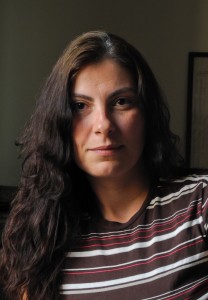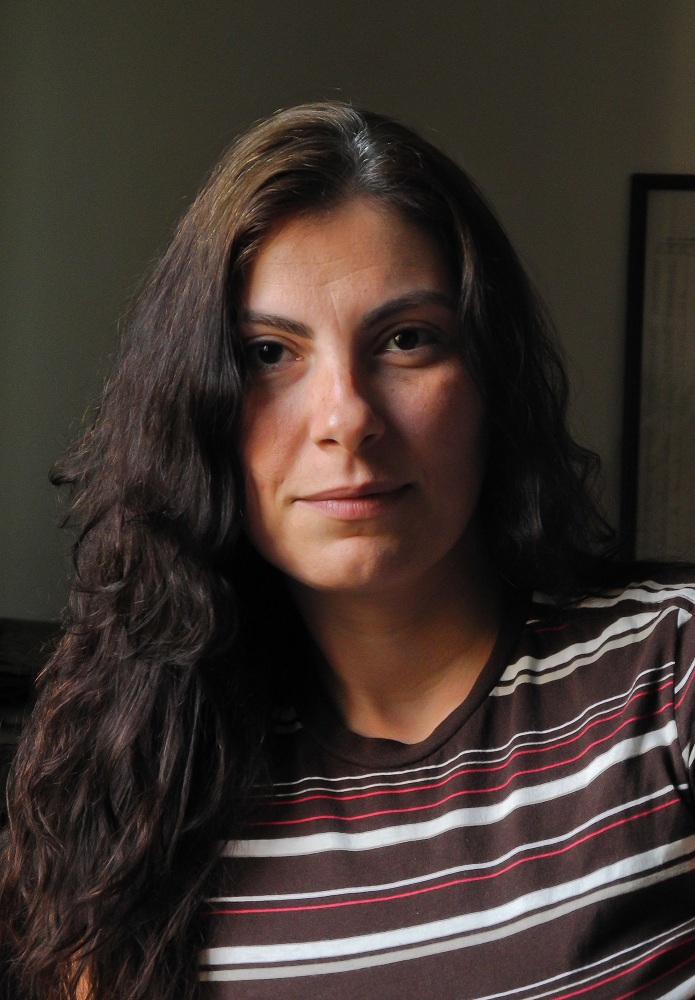
A couple of weeks ago, on my road back home using 6 October Bridge, I managed to avoid hitting two young girls – girls so little as to be invisible unless right in front of the car. For a full week, I saw them selling tissues in the same spot, and every day I could see them trying to walk between the cars and avoid being run over. Thankfully, traffic is always jammed in this part of the bridge so cars move slowly; otherwise they wouldn’t have survived. The girls, who look like sisters, are not over five years old.
Last Wednesday, I stopped and called one of them, asked about her mother and father, she said they were “not here”. I asked who is with them since they are too young to be there alone, she said: “Yes, we came with a grown up, but he’s standing under the bridge.” I asked her many other questions — her age, her home, etc. – but she looked too scared and teary eyed, and she ran away.
I immediately thought of saving these little ones, from that “grown up” who obviously didn’t even care whether they lived or died, let alone about feeding them or providing shelter or healthcare. I wanted to take them home, find shelter for them, maybe send them to one of the good charity orphanages that have been trying to address the problem of street children in Egypt (there are now millions of abused street children). But then that would be kidnapping; I could not take them home. I could not help them this way.
A few phone calls away, I got in touch with a lady called Shaimaa, referred to me by Amira Mikhail, who has done great work on the street children issue with Manadeelwaraq (a popular campaign for the protection of children launched in April 2012). Shaimaa works with street kids and knows the ins and outs.
After a long conversation, I realised that nothing could be done for the girls. There is no protection in this country for children, despite the very long constitutional article that begins with this assurance: “The state shall care for children and protect them from all forms of violence, abuse, mistreatment and commercial and sexual exploitation.”
Law 12/1996 and its amendment 126/2008 follow in the footsteps of international laws and conventions, and there is even an obligation in these laws to report child abuse cases.
The police don’t help though, as is always the case. They return the children to their parents, who will probably send the girls back on the streets. And if we take the girls and attempt to provide a better shelter for them, we can be jailed for kidnapping. It is this simple: if the girls’ parents are the ones sending them into the streets, there is nothing that can be done!
Shaimaa told me that the best I could do would be not to give the girls money, but provide them with food and clothes. That’s it. Lawyer Ahmed Meselhi of the Egyptian Coalition for Children’s Rights (ECCR) said there are two obstacles facing the implementation of the law protecting children. “The government’s performance is filled with red tape and corruption; there is no mechanism,” he said; yet another law that’s no more than ink on paper. The second obstacle, he said, is the lack of societal awareness and the absolute freedom given to Egyptian parents in their children’s upbringing.
It all makes sense, though; Egypt is a “paternal” country where the parents have the right to abuse their children with no one to stop them. This is a society that deems hitting one’s children an integral part of brining them up and making them “behave”. It is a country where the president is free to be harsh and oppressive with the pretext of “fatherhood”. “Consider him your father”, is a sentence we regularly hear when we object to our presidents’ faults and tactics.
A father is free to do whatever he wants with his children, including risking their lives as is the case with these two little girls, and the whole country when referring to Dad the President!
Now, what will become of those two little girls whom I still see on the bridge dodging cars? There is a grim chance that they will not always be successful in avoiding traffic, and be hit, or they could be kidnapped and raped or sold as slaves. Even in the unlikely event that they survive the streets, it will only make them become criminals one day, with psychological issues beyond repair.
This is what we are doing to our children. You can always call the state’s Motherhood and Childhood Council’s hotline, but it is a waste of time and accomplishes nothing. The question here goes to Dr Azza Ashmawy, head of this council. What use are you and your council if you can’t stop such abuse and make use of the existing laws? What exactly is your job but to fight for these little girls and the millions like them? And, really, how do you sleep at night?
————————–
Excerpt from one of Amira El Feky’s pieces on street Children (published in DNE on 14 April 2013):
We see them everywhere. They beg, they clean cars, they fight in the street. We see mothers with their babies and babies without their mothers. We see them in wheelchairs, sitting on the ground, leaning on our cars. Begging, touching us. Asking us to help them, for the love of God. We see them sleeping in the street, under a blanket, on a piece of cardboard. Sometimes, we mistake them for a pile of garbage. They are everywhere, all day, all night. We call them street children and most of us have never exchanged a single word with them.
………….
We are the ones who call these children street children, while they call themselves Laila or Ahmed. We must ask ourselves why we deny Ahmed and Laila the right to be children first, why for us it isn’t enough to simply advocate for children’s rights. There are endless amounts of abused children living in homes and invisible to our eyes and we do not want them to become street children.
If we manage to successfully advocate for children’s rights there will be no need to advocate the rights of street children. There will simply be no more street children.


